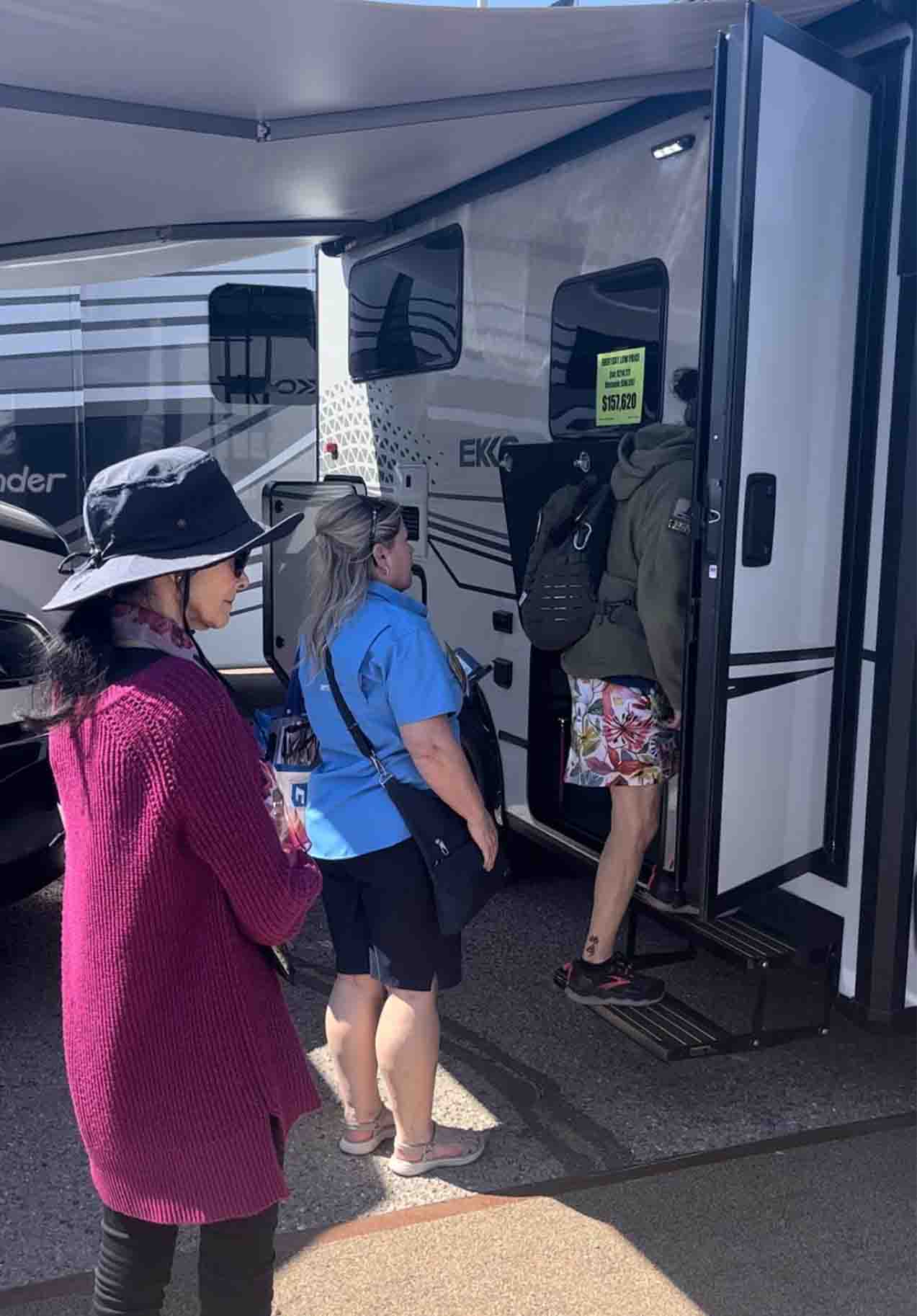

What To Look For In An RV
If you’ve decided you want to purchase an RV, it’s extremely important to consider the type, size, and floor plan that suits you and your traveling companions, if applicable.
As you shop, it’s important to stay within your budget. Having said that, though, try to allow some wiggle room in this regard, as you may find the perfect RV for you that is just outside your baseline budget. At the same time, don’t go overboard budget-wise. One of the great things about the RV lifestyle is the opportunity to trade up your home on wheels as needs or finances change.

The next important consideration is what type of RV to purchase, and, ultimately, whether to buy new or used. The standard recreational vehicle types are slide-in (truck camper), pop-up (tent trailer), travel trailer, fifth-wheel, and motorhome. For motorhomes, the different classes are A (built on commercial bus or truck chassis), B (van chassis), B+ (wide-body van), C (automotive van cab chassis; characterized by an overhang above the cab), and Super C (large Class 7 diesel truck chassis). The latter may even incorporate a Class 8 chassis. On top of this, there are also “toy haulers,” which are RVs with literal garages at the back to store motorcycles, ATVs, dirt bikes, scooters, and even small cars, or for use as additional living space. So, there are many choices to explore. In addition, if you opt for a tow-behind RV (pop-up, travel trailer, or fifth-wheel), you must either own a suitable towing vehicle or be prepared to invest in one.
Visit a large dealership that has many RVs of different types on the lot to really dig into what suits your needs. After narrowing down the units in your price range, next consider sleeping capacity and make sure the vehicle offers sufficient space to meet your needs. The sleeping capacities of some RVs seem to have increased significantly in the past few years. In addition to dedicated bedrooms and bunk rooms, sleeping space may be provided by sofa beds, convertible dinettes, or even Murphy beds or beds that pull down from the ceiling over the cockpit.
After sleeping capacity comes features and floor plan. Some people are very particular about layout, interior décor, appliances, etc. Motorhome versus trailer will enter into the decision matrix at some point. Here are my thoughts on this, although it definitely comes down to personal preference:
- A suitable towing vehicle is required when purchasing a trailer. Don’t take shortcuts here. You don’t want to have overheating or drivetrain stress on your truck, especially when it comes to hill climbing. Therefore, you will likely find yourself investing a lot of money in a good towing vehicle.
- Trailers allow you to disconnect at the campsite and have a commuter vehicle to use for excursions.
- Motorhomes involve a larger initial investment, especially if you already have a vehicle suitable for towing a trailer.
- Motorhomes are easier to utilize while on the road. For instance, pulling into a rest stop and using the bathroom or preparing a meal is easier in a motorhome than a trailer. In some RVs, the bathroom or refrigerator is not accessible unless the slideouts are extended; so, this is something to consider if this is important to you.
- With a motorhome, you do not have a smaller vehicle for excursions, unless you tow a car behind, which adds to the expense.
In the next “RV Curious” installment, I will delve into the gas-versus-diesel argument that applies to motorhomes, but also to trucks used for towing. And I’ll shed light on the decision as to whether to purchase a new or a used RV, and whether to buy from a dealership or a private seller.

Are You Curious About Purchasing An RV?
FMCA has the resources you need to become the smartest and most informed RV buyer. Take advantage of Pathfinder member benefits and save time and money as you search for your perfect "home on wheels."
Join Pathfinder today ‐ it's only $99 for a whole year of benefits!




